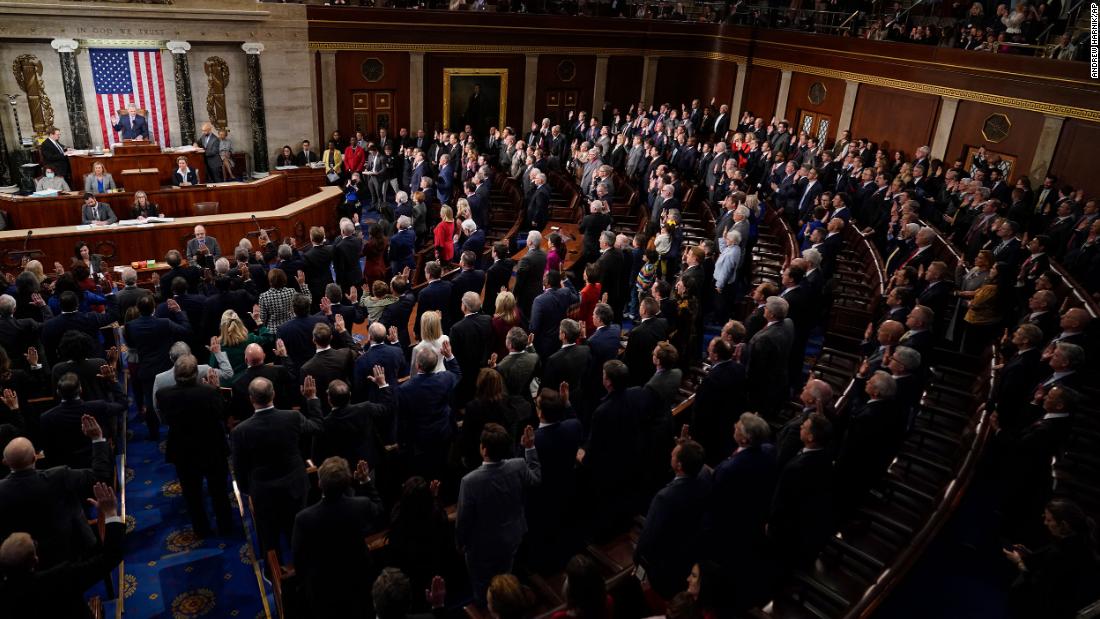In a highly anticipated vote, the House of Representatives on April 20 once again rejected a border security bill. The bill, known as the 'End the Border Catastrophe Act,' was based on H.R. 2, a border security bill passed by House Republicans in the 118th Congress. It outlined policies such as ending catch and release, reinstating 'Remain in Mexico,' and fixing the broken asylum and parole processes. The bill was supported by all Republicans but failed to pass due to opposition from the majority of Democrats.
The vote came as the House also considered a separate $95 billion foreign aid legislation that included funding for Israel, Ukraine, and Taiwan. This inclusion of foreign aid funding in the bill caused controversy and led to the rejection of the border security bill, despite Republican efforts to push for its passage.
The rejection of the bill comes at a time when the United States is facing an unprecedented crisis of illegal immigration at the southern border. Since President Joe Biden took office in January 2021, Border Patrol has encountered more than 7.6 million illegal immigrants, with millions more estimated to have entered undetected.
House Speaker Mike Johnson (R-La.) originally promised not to put the Ukraine funding on the floor without concessions from Democrats, but ultimately allowed the bill to be voted on in an effort to appease conservatives who have been critical of his approach to foreign aid. However, this move received criticism from some of Mr. Johnson's peers in the House, who dismissed it as "theatrics" and "pretend."
One of the main arguments against the bill was that it would take resources away from securing the U.S. border and instead be used to secure the borders of other nations. Some Republican representatives, such as Bob Good (R-Va.) and Andy Ogles (R-Tenn.), suggested attaching a 'Remain in Mexico' policy requirement to the Ukraine legislation instead.
The failure of the bill represents another unsuccessful attempt at passing meaningful border security legislation in Congress. Republicans' H.R. 2, the first border bill proposed in the 118th Congress, was passed in the House but has yet to receive a vote in the Senate. Another border proposal from the Senate also failed to move forward in the House after facing criticism from Republicans.
The rejection of the 'End the Border Catastrophe Act' highlights the deeply divided opinions on border security and foreign aid within the House. While Republicans see securing the southern border as a top priority, Democrats have pushed back against measures they deem as inhumane. This divide has led to a deadlock in attempts to pass legislation that addresses both issues simultaneously. As the crisis at the border continues, the impasse in Congress over border security and foreign aid persists.
While tensions and disagreements within the House remain high, the failure of this bill also reflects the ongoing struggle in Washington to compromise on major policy issues. With Republicans and Democrats deadlocked on their views on border security and foreign aid, it seems unlikely that a comprehensive solution will be reached anytime soon.
As for the immediate future, the rejection of the bill means that the crisis at the southern border continues to be a pressing issue with no clear resolution in sight. Without a bipartisan effort to find common ground on these issues, it is likely that the deadlock in Congress will continue and the situation at the border will remain stagnant. The rejection of this latest border security bill serves as a reminder of the challenges facing the U.S. government in addressing complex and divisive issues, and the need for cooperation and compromise in finding solutions.

